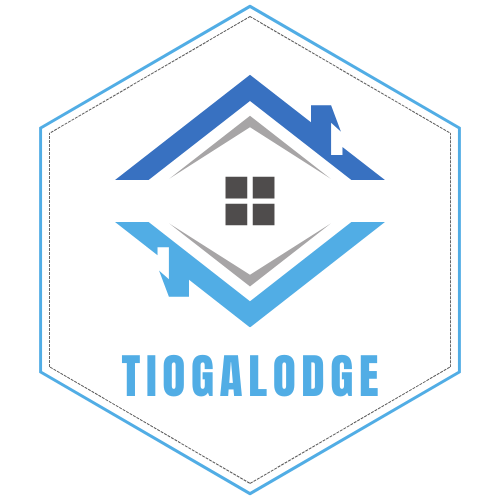Table of Contents
ToggleBuying a house can feel like navigating a maze blindfolded, especially when it comes to understanding the timeline for that all-important down payment. Picture this: you’ve found your dream home, and now you’re faced with the question of when to cough up that cash. Spoiler alert: it’s not as simple as “whenever you feel like it.”
Understanding Down Payments
Determining a down payment’s due date hinges on several factors. A buyer typically makes the down payment once an offer on a house is accepted. This payment often secures the purchase agreement and indicates the buyer’s commitment.
Many lenders require a specific percentage of the home’s purchase price as a down payment. This percentage can vary from 3% for some conventional loans to 20% for others. Buyers who put down 20% may avoid private mortgage insurance, increasing their savings over time.
Timing is essential since the down payment must be ready before closing. Closing dates usually fall 30 to 60 days after the purchase agreement is signed. Thus, ensuring the down payment is accessible before that timeline is crucial.
A title company or escrow service typically holds the down payment in trust until the sale completes. This arrangement protects both the buyer and seller, ensuring funds are secure during the transaction.
Understanding contingencies is also vital. Buyers might negotiate contingencies, allowing them to handle financial obligations before finalizing the down payment. These contingencies can extend timelines but must be agreed upon by both parties.
Planning finances accordingly makes the process smoother. Buyers should budget for their down payment and related closing costs. These expenses often include appraisal fees and inspections, which can add to the financial preparation required before homeownership.
Timing of Down Payments

Understanding the timing of down payments is essential in the home-buying process. The down payment signifies a buyer’s commitment and readiness to proceed with the purchase.
Typical Timeline for Payments
Typically, buyers submit the down payment once the seller accepts their offer. This usually occurs within a few days of offer acceptance. It’s often necessary to prepare funds for this payment early in the process. Most closing transactions take place 30 to 60 days after the purchase agreement is signed. Timing can vary based on factors like financing and inspection requirements.
Key Milestones in the Home Buying Process
Essential milestones mark the home-buying journey. First, buyers submit an offer and wait for acceptance from the seller. Once accepted, the earnest money deposit becomes due. Pre-approval of financing typically follows, ensuring the buyer’s eligibility for a mortgage. Afterward, the buyer conducts inspections. The final step occurs at closing, where the down payment settles and the property transfers ownership. Understanding these milestones helps buyers navigate their financial commitments effectively.
Factors Affecting Down Payment Timing
Several factors influence when a buyer makes a down payment during the home-buying process. Understanding these aspects is crucial for effective financial planning.
Type of Loan Secured
Loan types significantly affect down payment timing. Conventional loans may require a 20% down payment to avoid private mortgage insurance, while FHA loans only mandate 3.5%. Buyers using VA loans can often secure homes without any down payment, making timing less critical. Lenders may provide specific timelines based on the loan type, affecting how soon a down payment must be prepared. Buyers should consult with lenders to understand their advancements and obligations according to the chosen loan.
Seller’s Preferences
Seller preferences play a pivotal role in down payment timing. Some sellers may expect a down payment shortly after an offer acceptance, while others could be flexible based on negotiations. Sellers who prioritize a quick closing might request an immediate down payment to expedite the process. Conversely, those aiming for a more extended closing timeline may offer more leeway, allowing buyers to gather necessary funds. Understanding seller expectations can help buyers navigate their down payment timing strategically.
Strategies for Planning Your Down Payment
Planning for a down payment requires strategic thinking and disciplined saving. Buyers can take several steps to ensure they have the necessary funds ready before closing.
Setting Aside Funds
Setting aside funds consistently helps build a substantial down payment. Establishing a dedicated savings account for home-buying expenses ensures that money remains separate from everyday spending. Automating monthly transfers into this account supports regular savings habits just as setting a target date for home purchase motivates discipline. Monitoring progress fosters a sense of accomplishment as the balance grows. Determining specific savings goals based on the desired down payment percentage keeps buyers focused and accountable.
Exploring Assistance Programs
Exploring assistance programs can provide financial relief for first-time buyers. Many local and state governments offer grants or low-interest loans to help with down payments. Researching available programs in their area helps buyers identify potential opportunities for support. Eligibility requirements often include income limits and attendance at homebuyer education courses. Connecting with real estate agents knowledgeable about these programs can provide valuable insights and recommendations. Taking advantage of assistance can significantly reduce the financial burden associated with purchasing a home.
Navigating the timeline for a down payment is essential for a successful home purchase. Buyers must be prepared to make this financial commitment promptly after their offer is accepted. Understanding the specific requirements of different loan types and being aware of seller preferences can significantly influence when the down payment is due.
By planning and budgeting effectively, buyers can ensure they’re ready to meet these obligations without unnecessary stress. Establishing dedicated savings strategies and exploring assistance programs can also ease the financial burden. With the right preparation, buyers can confidently move through the home-buying process and secure their dream home.




